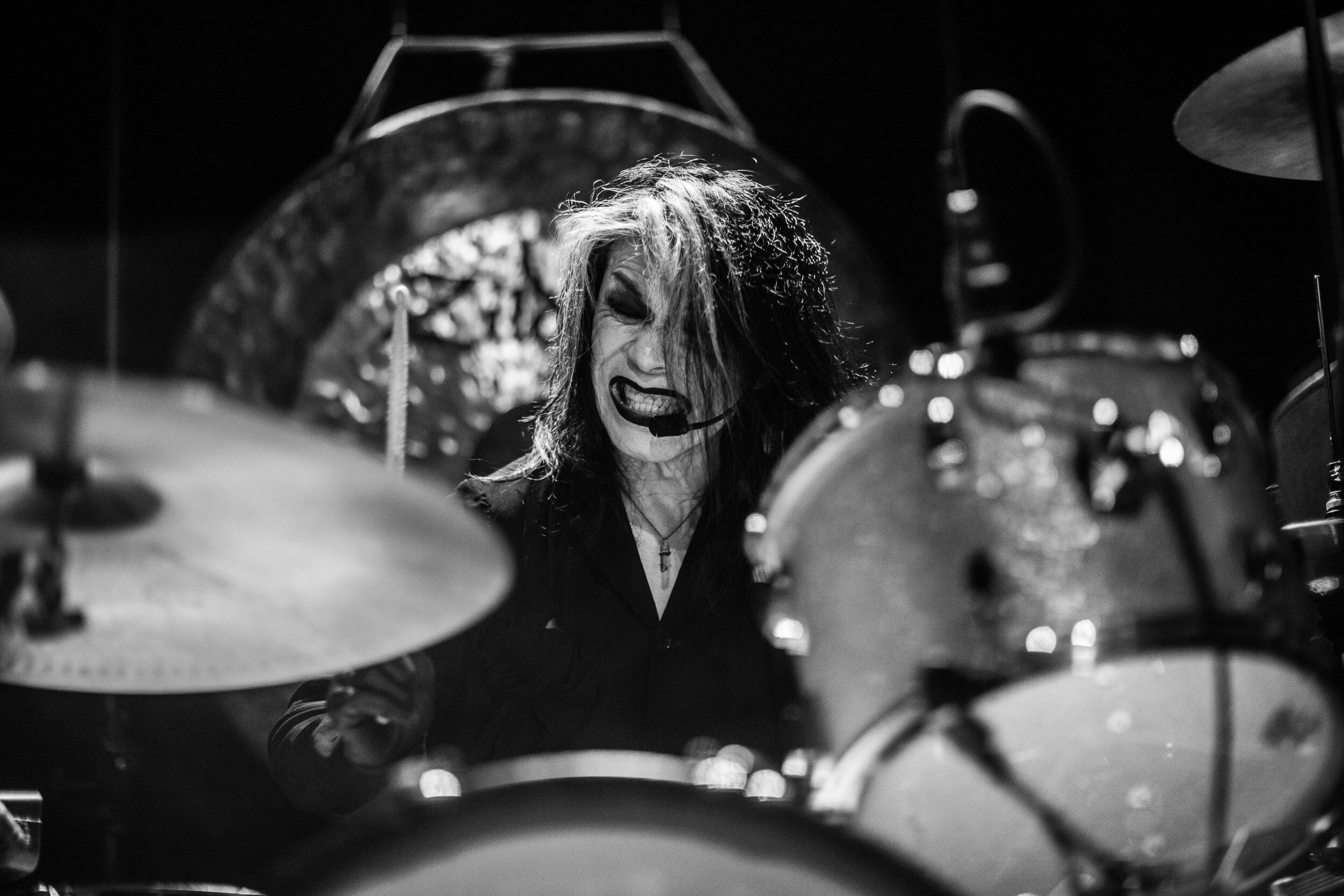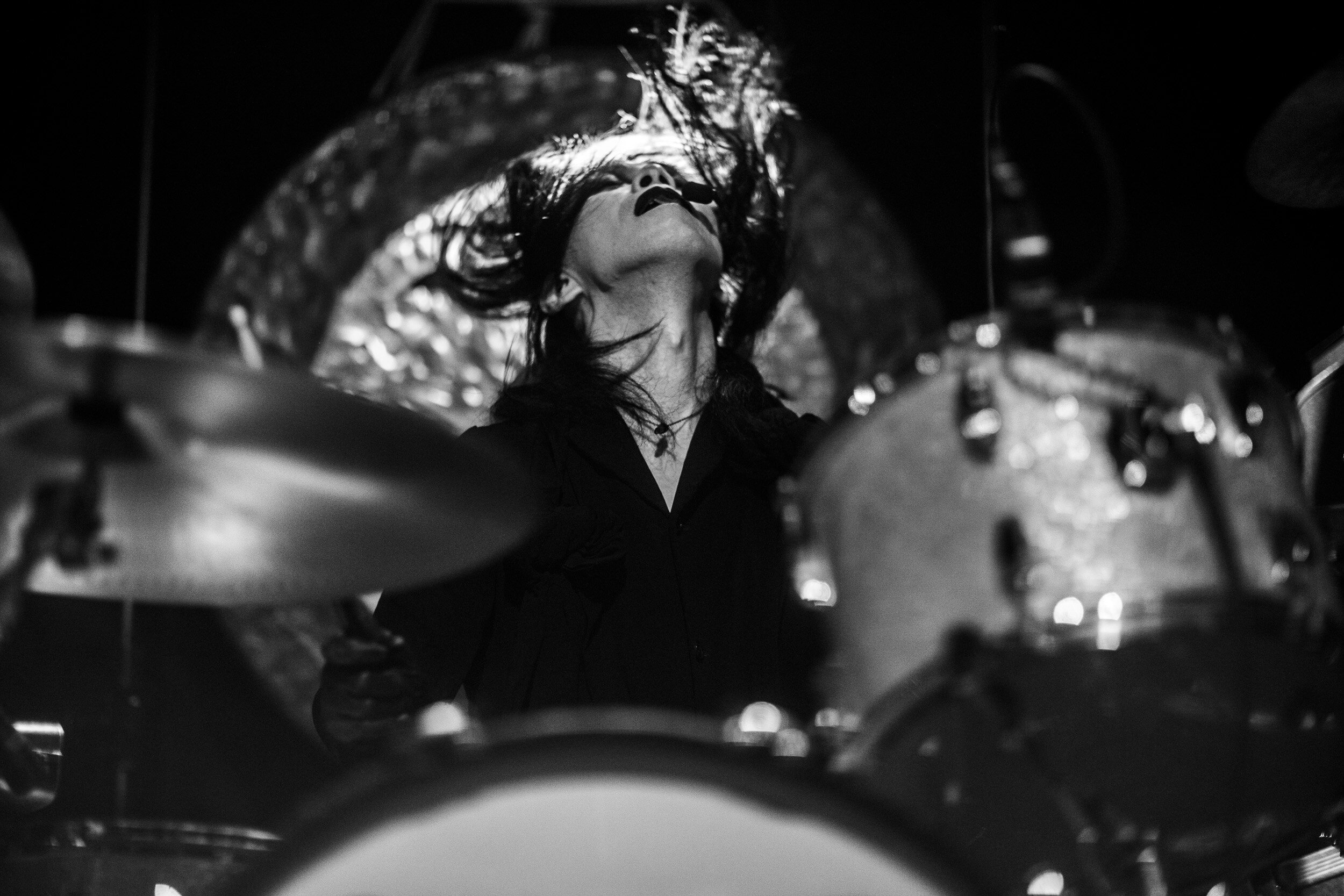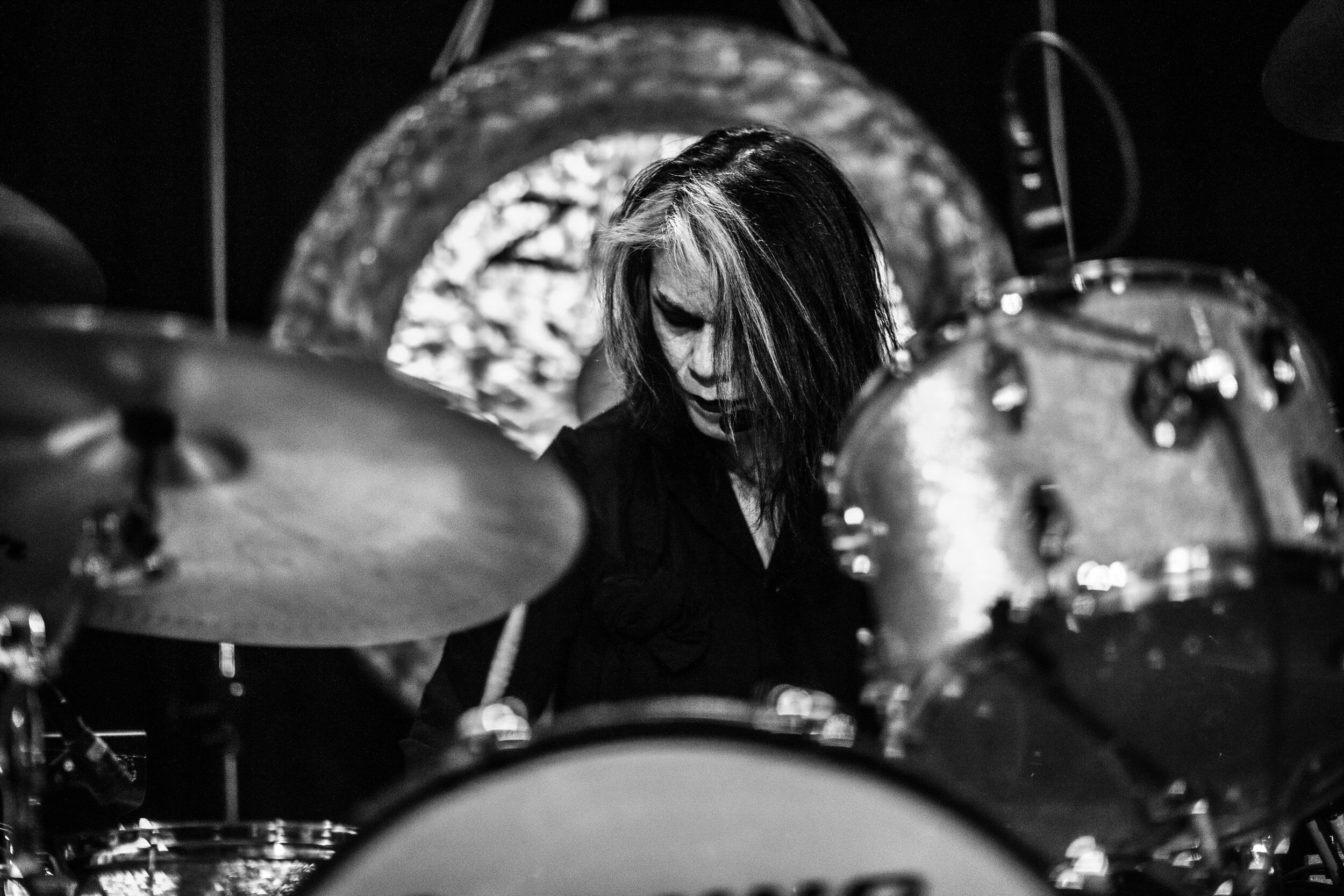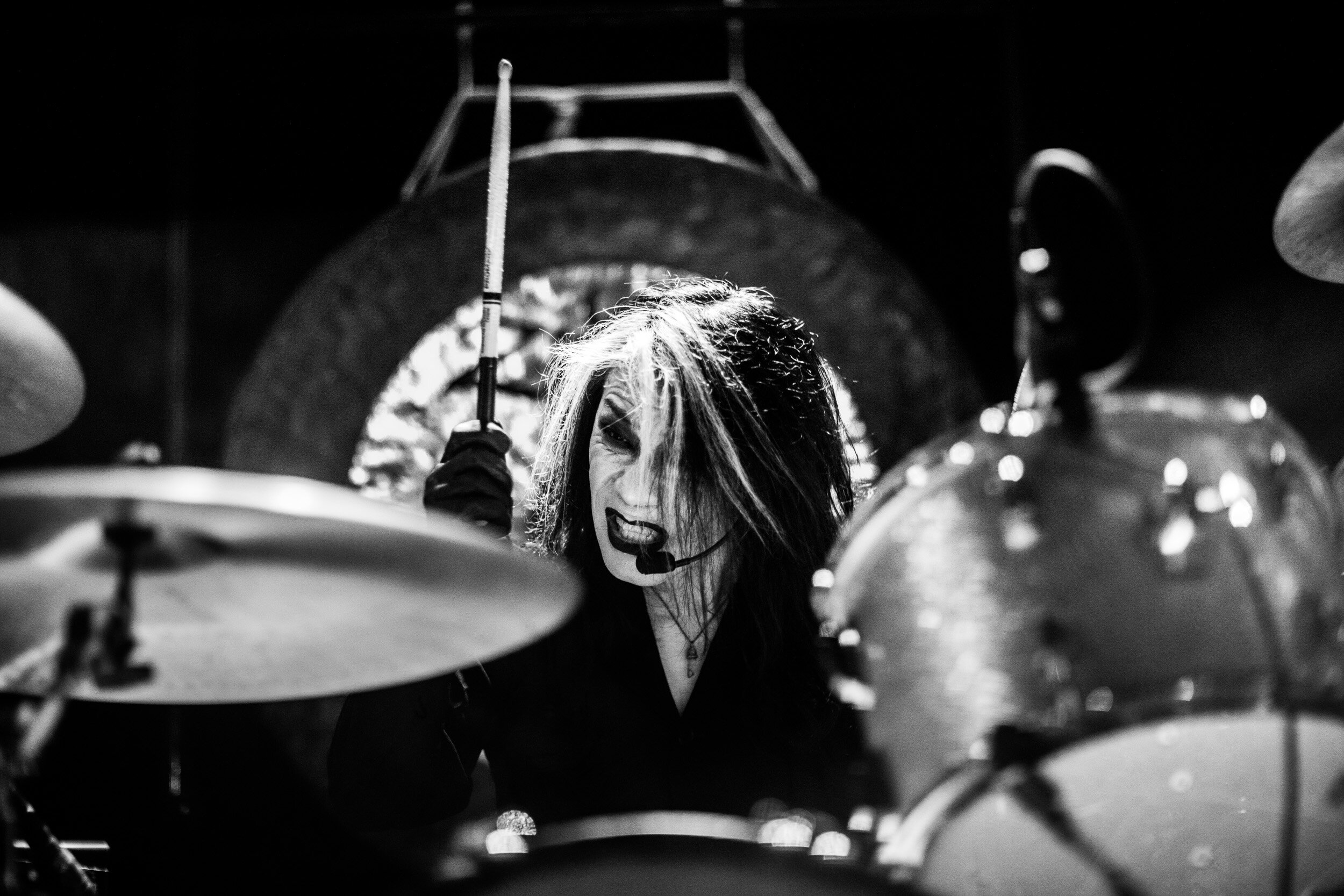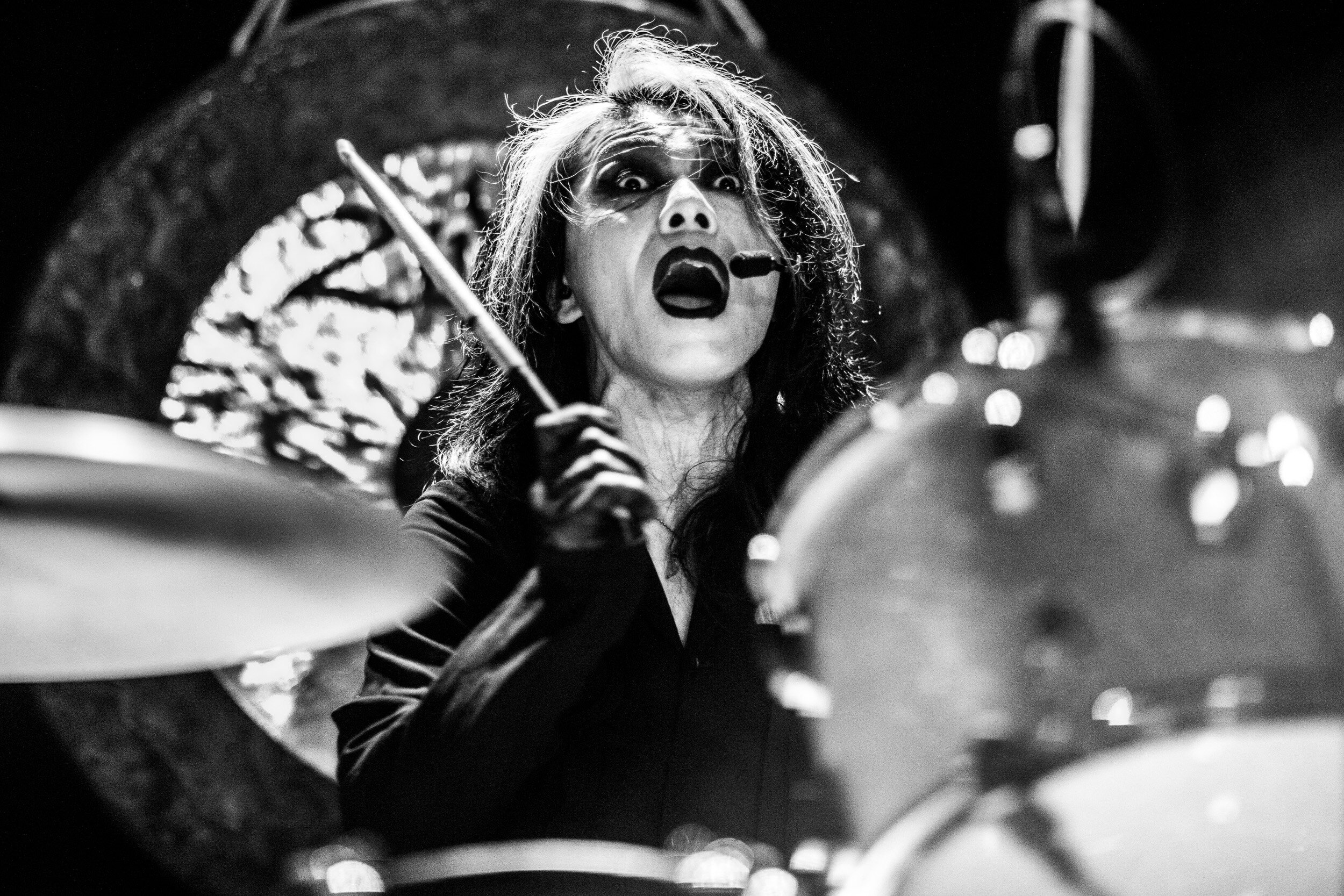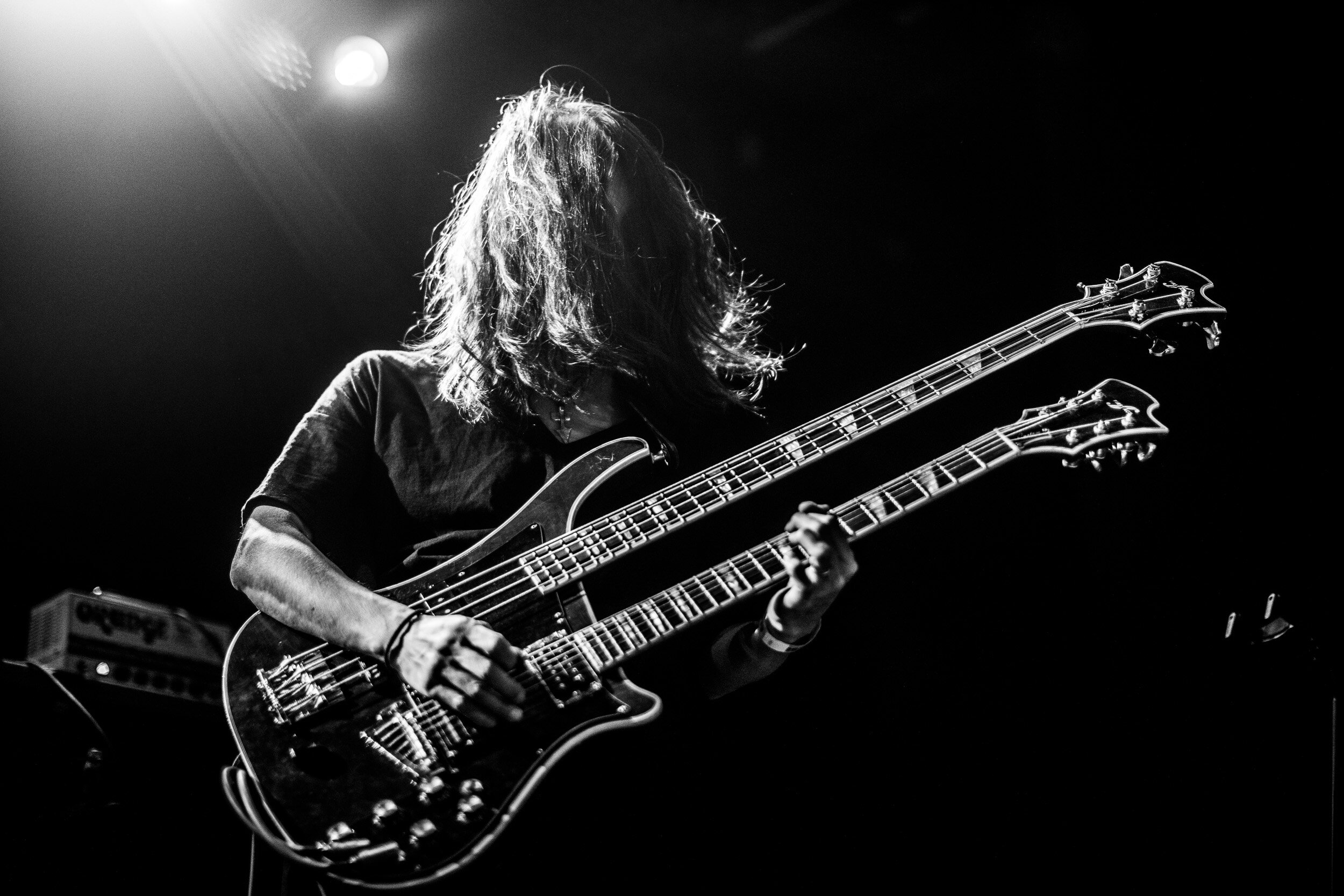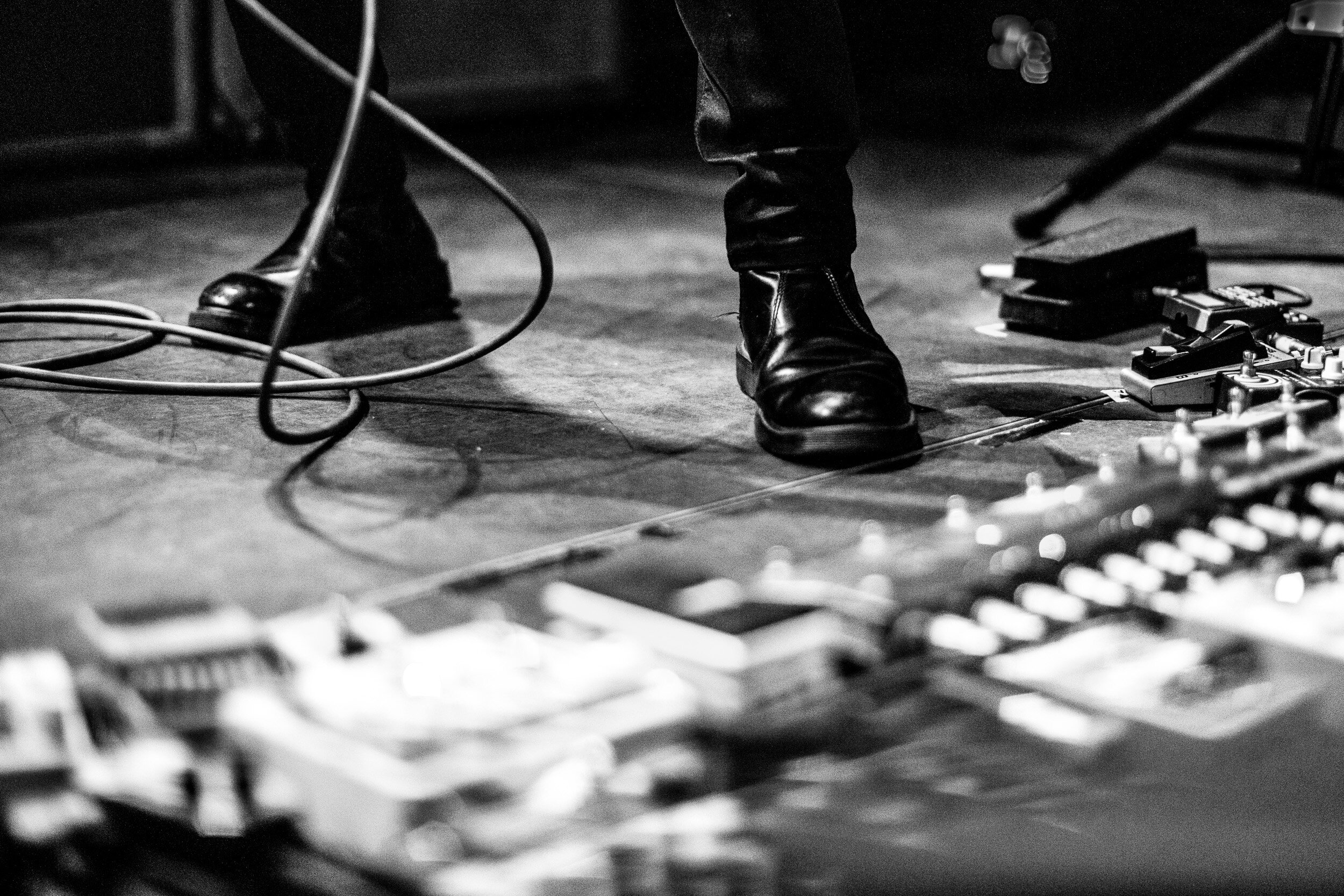Boris: Crossing the Horizons of Heavy

Wata + Atsuo + Takeshi
Although the journey has been long, Boris has never strayed from their initial approach. When they began performing in the early ‘90s, they created devastating, low-end distortion drones that sounded heavier than anything in metal at the time, gradually carving melodies and building their walls of noise. Everything started in Tokyo when guitarist Wata, bassist Takeshi, vocalist Atsuo, and drummer Nagata decided to form a band and named it after a song from Melvins' album Bullhead.
Boris's debut album Absolutego was released in 1996 on their own record label, Fangs Anal Satan. Nagata departed in 1996 and Atsuo switched to drums, while Wata expanded her duties to lead guitar and keyboards. Takeshi took on both bass and rhythm guitar using a double-necked instrument of his own design. All three adopted lead vocal roles and the band has remained a three-piece ever since.
Few bands last that long and even fewer bands manage to do so while maintaining essentially the same lineup. Yet since their beginning, the Tokyo heavy rock/metal outfit have constructed an intricate mesh of studio albums, plus collaborative releases with the likes of Sunn O))) and Merzbow, which have made their discography not just abundant but multifaceted and enigmatic. More than two decades and twenty releases later, their latest album, LφVE & EVφL, is due (Oct. 4 via Third Man Records. A large-scale summary of Boris’ career, the record revisits directions taken in the past while uncovering new sounds in the process.
This album exists as two independent works, condensing contradictory references that interlace and become intricately entangled with one another, gradually eroding before becoming distinctively singular. Continuing to fiddle and work with their sound since the 2017 release of Dear, Boris has turned toward a more organic, non-grid literary style that LφVE & EVφL showcases.
“We never create work by visualizing the finished product,” bassist Takeshi says. “We don’t challenge it; we don’t move toward the ideal. It’s more like we create work by enjoying the accident. No one knows what kind of song it’ll end up. The music doesn’t belong to the musician, so we need to listen well, feel how the song wants to be, which will lead us toward progress in production.”
Boris has been boldly exploring their own vision of heavy music, where words like “explosive” and “loud” barely do justice. Using intense soundscapes made more elaborate with a massive effect, the band has shared a profound experience with audiences across the planet through their concerts, earning legions of devoted fans along the way. “It’s like we’ve made the pilgrimage to the world through music. It’s as though music has become the prayer of our daily lives. It has become a state where the music has more purity. The category of music, trendiness or outdatedness, doesn’t matter at all—just that it’s a daily prayer to us. Like hope.”
Heavy, for Boris, is more a way to be than a musical style. Their songwriting is unrestricted, the end result is often different than what came before it, but that’s only because the band allows the music to speak to them, rather than the opposite. ∎
“We never create work by visualizing the finished product”
“The music doesn’t belong to the musician, so we need to listen well, feel how the song wants to be”


